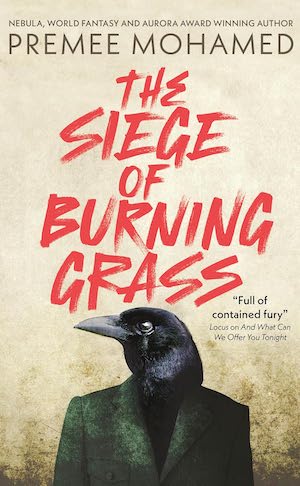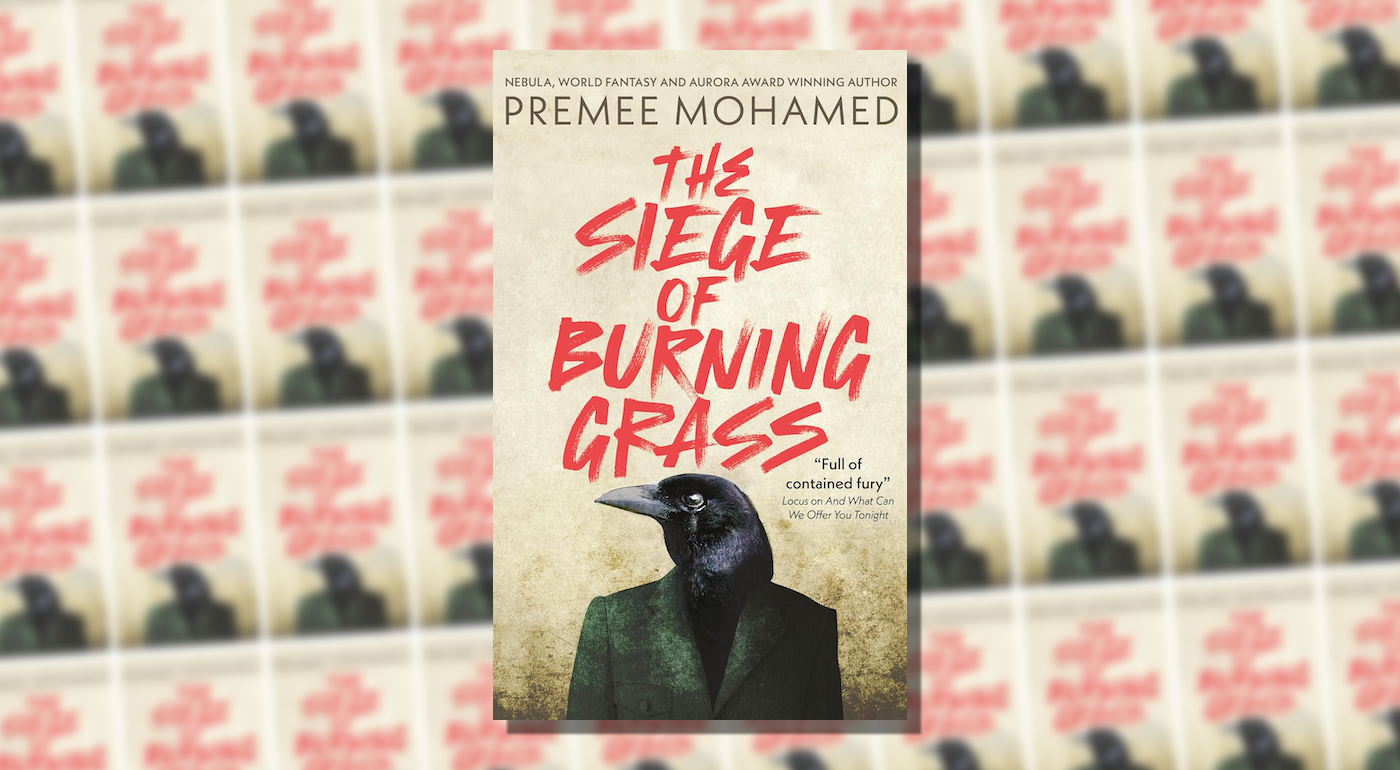Alefret is sick of war, a staunch and terrified pacifist in the brutal country of Varkal, which has been at war with the peoples of Meddon for what seems to be his whole life. Up until recently, he was able to keep his head down, along with many ordinary citizens. Now the conflict with Meddon has entered a whole new era of violence, and pacifists like Alefret are not tolerated. When a wayward missile blows up in his face, tearing his leg from him and sending him into unconsciousness, he awakens in an old private school, commandeered by the Varkal military. As the wasps and spiders treat his leg, attempting to regrow it, he is tortured day in and day out, unable to tell his captors and countrymen anything they deem useful. He is waiting to die when he is approached by the officer in charge with a mission: He can earn his freedom if he infiltrates Meut’s floating capital city and get one of their most violent, loyal patriots inside. He doesn’t even have to do anything; he just has to use his status as a pacifist icon to sway the Meddon revolutionaries who have idolized him and convince them to let him and his companion inside. An impossible choice, but there is some small spark inside Alefret that, along the way, he could maybe truly end this war. But at what cost?
The Siege of Burning Grass by Premee Mohamed deserves to be on every Best Of list that will sprout up towards the end of the year. Don’t wait to let a dozen other people tell you what I’m telling you now: Go read this novel. I have never read anything like it, and it goes beyond Mohamed’s usual strong prose, inventive worlds, and rock-solid characters. It is a whole new perspective on fantasy literature from within the beast of fantasy literature itself, fueled by rage, pain, and hope amidst the flames.
Mohamed has a tremendous talent, point-blank. Seriously, no one so consistently gets award-nominated or published the way she does, and for damn good reason. Well, two reasons. One is that tremendous talent. The other is her consistency—not consistency in prose and character and phenomenal worldbuilding (though she has all of those locked down), but consistency in pushing a story in a direction the reader both dreads and least expects. From page one, if you think you can predict the journey of Alefret and his terrifying companion Qhudur, I promise, you do not. Mohamed expertly keeps the readers on their toes: Will Alefret break through the jingoistic, violent exterior of Qhudur? Is there actually anything more to this soldier, dedicated so fiercely to his country and cause that he’d put his heart on a platter if it would poison Meddon? Or will Qhudur, with his poisonous rhetoric and his feral brutality, be the one to drive Alefret to violence, if only to solve the problem of rabid Qhudur’s hunger for genocide?
Buy the Book


The Siege of Burning Grass
Oh, how Mohamed tests Alefret, again and again. It’s like pairing a German Shepherd with knives for teeth who sees pretty much anything as meat, and a large, harmless mushroom trying to convince the knife-mouth dog to consider going vegan. And while that image might be a little comedic (and it is, at times), it is far more often absolutely, pants-ruining levels of terrifying. From crossing badlands, dead wastes, and navigating the high grasses that hide enemy soldiers and starving survivors, Alefret then has to contend with more military, finding a way into the floating city, and then infiltrate the Meddon resistance—all with crutches, his medical wasps, and Qhudur, who he keeps trying to draw the humanity out of.
It is a true feat of Mohamed that along this entire journey, Alefret struggles with his pacifism: There is no better side, no lives that hold more value than others, no wound that can be inflicted that is not inflicted on your own soul, regardless of the justification. In the end, it is all violence, all fear. All that is left is rage at governing forces that prioritize victory over life; all that is left after rage is this one purpose: to save as many as you can without sacrificing your soul in the process.
It is not an easy road, but it is a thoroughly engaging one, often sublime in its strangeness, those flashes of worldbuilding that bewilder and tantalize, the hint of histories buried by madmen and sycophants. Everyone is trying to write over the other’s past and murder their way to their ideal future, and Mohamed has the reader see this all through the benevolent, kind, caring, weary, but sturdy eyes of Alefret; truly one of the most dynamic, fascinating, and empathic protagonists I’ve encountered in quite a while.
Wars in fantasy are commonplace, but rare is it that a whole novel is sustained not just by one opposed to war, but committed to peace, no matter how much the world tests him and his resolve. Walking alongside Alefret, absorbing the horror and shock, alongside small moments of tenderness and relationships strengthened, Mohamed gives the readers everything they didn’t know they needed and more. The Siege of Burning Grass is a raging treatise, fascinating fantasy, and bittersweet character study; the fact that it’s delivered in beautiful prose is truly the cherry on top. This one is going to be on nomination lists next year, and if it isn’t… well, like Alefret, I’ll try not to do anything rash, but I will be a little miffed.
The Siege of Burning Grass is published by Solaris.

